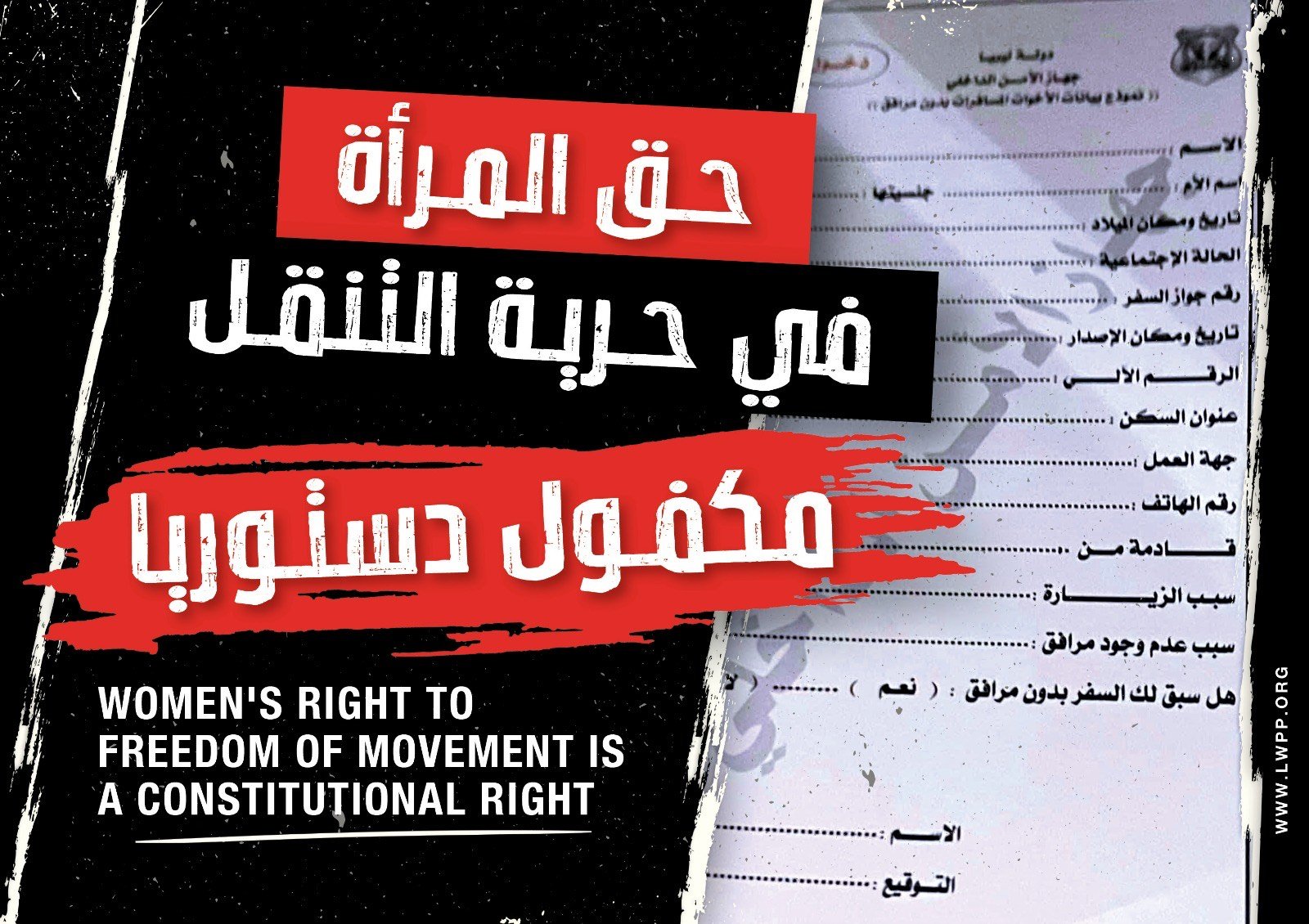Special Rapporteur and Human Rights Watch join calls to end travel restrictions for Libyan women
The Libyan Women’s Platform for Peace campaign against restrictions on women’s freedom of movement in Libya has been bolstered as leading global authorities have voiced their concerns over the discriminatory procedures women now face.
In May this year, Libya’s National Unity Government implemented new restrictions on women solo travellers. The restrictions meant that women travelling alone were required to present a declaration providing: their reasons for travel, an explanation of why they are traveling alone, and details of their travel history.
Karama partners the Libyan Women’s Platform for Peace coordinated a statement from over 130 activists, networks, and organisations condemning the restrictions as a violation of women’s constitutional rights.
This week the concerns raised by LWPP have been echoed by the leading voice for the rights of women and girls in the UN human rights system, and by one of the world’s largest and most respected authorities on human rights.
Today, Reem Alsalem, Special Rapporteur on violence against women and girls, its causes and consequences, issued a statement raising her “deep concerns” over the restrictions.
“Not only is this policy discriminatory, but it also restricts the freedom of movement of women and girls, including students who leave the country to study abroad...The restriction marks a further erosion of the rights of women and girls in Libya and sends the wrong signal...Women’s equality and dignity must be ensured.”
Her statement, which has been endorsed by several of her colleagues in Special Procedures of the Human Rights Council, also raises concerns about “reported attempts by the Libyan Internal Security Agency (ISA) to intimidate human rights defenders, including women, who have spoken out against these policies.”
It asks that the Libyan government “withdraw this discriminatory requirement and to prevent all intimidation, harassment and attacks against women and human rights defenders who have protested against this discriminatory policy.”
The statement from the Special Rapporteur comes in the same week that leading NGO Human Rights Watch also called for the abolition of the restrictions in Libya and similar measures in place elsewhere in North Africa and the Middle East.
Published this week, Trapped: How Male Guardianship Policies Restrict Women’s Travel and Mobility in the Middle East and North Africa details laws and practices that curb the freedom of movement for women and girls in the region.
In the section dealing with Libya, the report cites the Libyan Women’s Platform for Peace in relation to the restrictions that commenced in May this year.
The report recommends that:
“Governments in the Middle East and North Africa should remove all remaining discriminatory restrictions, both in law and practice, on women’s freedom to move about within their own country, to obtain a passport, and to travel abroad, including with their children.”
Karama hopes that this renewed focus on the violations of women’s constitutional rights in Libya will see the restrictions rescinded, and women’s rights, dignity, and privacy respected. This matter is of particular importance given the prospect of Libya holding general elections in the near future. If those elections are to be free and fair, there can be no such discriminatory measures that might potentially prevent the participation of women.

